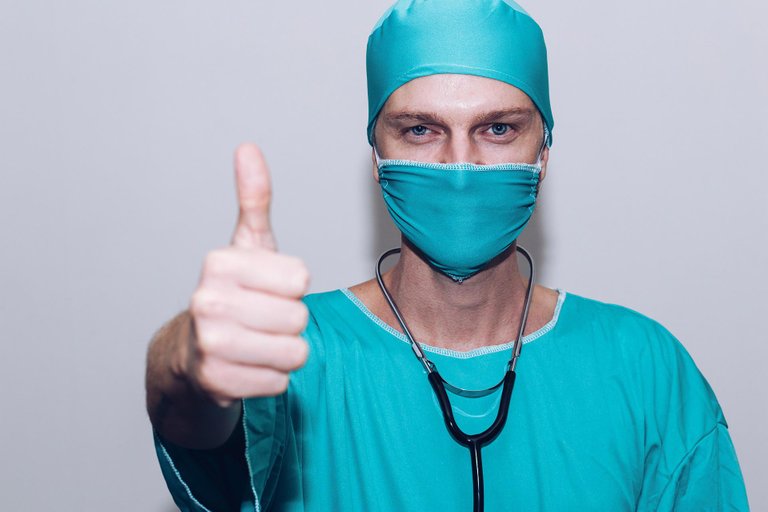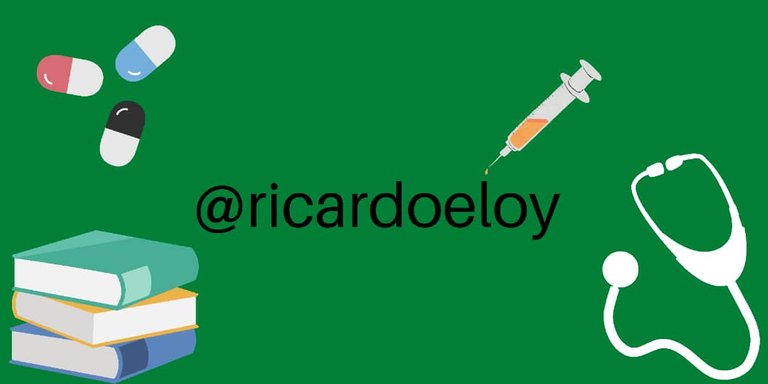Cuidados Pos-Operatorios (ENG-ESP)

Buenas comunidad, aquí nuevamente para seguir compartiendo temas médicos en mi blog, y como lo prometido es deuda hoy vengo para continuar el tema del anterior post , el cual agradecer por el apoyo, y como ya hablamos de los cuidados Pre-Operatorios hoy nos centraremos en el Pos-Operatorio.

Pos-Operatorio
Lo definiremos como el lapso de tiempo que transcurre desde que termina el acto quirúrgico, hasta que el paciente es dado de alta.
Y al igual que en el Pre-Operatorios se clasifica en dos momentos Inmediato y Mediato.
Pos-Operatorio Inmediato:
Este es cuando el paciente está más necesitado de cuidados intensivos y puede durar más de 24 hora dependiendo de la cirugía que se le haya realizado, es importante velar por los siguientes aspectos.
1-Control del los signos vitales:
Vigilar la temperatura,Frecuencia Cardíaca, Tensión Arterial y Frecuencia Respiratoria, en esta etapa se realizará la vigilancia cada 15 minutos.
2- Función Respiratoria:
En pacientes con anestesia general, pueden acumular secreciones en el árbol bronquial que deben ser aspirada a través de tubo endotraqueal.
3-Manejo de Sondas:
Sonda vesical para medir diuresis y Sonda Levine para realizar aspiraciones cada 3 horas.
4-Exámenes complementarios
Para evaluar estado hemoquímico dentro de los que no puede faltar Hemograma y hematocrito.
5-Calmar el dolor
Uso de analgésicos por vía parenteral.
6-Alimentación:
Durante este periodo suspender via oral y mantener hidratación parenteral.
7-Posición de la cama:
Es importante que el paciente con anestesia general mantenga posición en decúbito supino sin almohada y con la cabeza lateralizada, para evitar broncoaspiración por vómitos.
Pos-Operatorio Mediato
1-Control de los Signos Vitales:
Vigilar temperatura, Frecuencia Cardíaca , Tensión Arterial y Frecuencia Respiratoria en esta Fase será cada 12 horas.
2- Manejo de Sondas y Drenaje:
Retirar sonda levine y vesical a las 24 a 48 horas
3-Cuidados de la Herida Quirúrgica:
Se debe observar a diario y ver si no hay signos de inflamación que hagan pensar en sepsis.
La Herida Quirúrgica se puede mantener destapada y la cura debe ser seca solo con alcohol.
Los puntos de la piel se pueden retirar de forma alterna al 6to y luego al 7mo día.
4-Movilización del paciente:
Se debe incorporar de la cama precozmente para que deambular pues la movilización es profiláctica para algunas complicaciones.
5-Alimentación: Se inicia por líquido y si es tolerado se pasa gradualmente a dieta blanda y libre después.

Después de repasar este tema detenidamente podemos afirmar que con la correcta realización de los cuidados Pos-Operatorios podemos lograr evitar que se produzcan complicaciones que lleven al fallecimiento del paciente, o que en caso de que estas aparezcan podamos ser capaz de detectarlas a tiempo.

Hello community, here again to continue sharing medical issues on my blog, and as promised, today I come to continue the topic of the previous post, which I thank for the support, and since we already talked about Pre-Operative care, today we will focus in the Post-Operative.

Post-Operative
We will define it as the period of time that elapses from the end of the surgical act, until the patient is discharged.
And as in the Pre-Op, it is classified into two moments Immediate and Mediate.
Immediate Post-Operative:
This is when the patient is most in need of intensive care and it can last more than 24 hours depending on the surgery that has been performed. It is important to ensure the following aspects.
1-Control of vital signs:
Monitor temperature, heart rate, blood pressure and respiratory rate, at this stage monitoring will be carried out every 15 minutes.
2- Respiratory Function:
In patients with general anesthesia, secretions can accumulate in the bronchial tree that must be aspirated through the endotracheal tube.
3-Probe Management:
Bladder catheter to measure diuresis and Levine catheter to perform aspirations every 3 hours.
4-Complementary exams
To assess hemochemical status within which you can not miss Hemogram and hematocrit.
5-Relieve pain
Use of parenteral analgesics.
6-Food:
During this period suspend orally and maintain parenteral hydration.
7-Bed position:
It is important that the patient under general anesthesia maintains a supine position without a pillow and with the head lateralized, to avoid bronchial aspiration due to vomiting.
Mediate Post-Operative
1-Control of Vital Signs:
Monitor temperature, heart rate, blood pressure and respiratory rate in this phase will be every 12 hours.
2- Management of Probes and Drainage:
Remove levine and bladder catheter at 24 to 48 hours
3-Surgical Wound Care:
It should be observed daily for signs of inflammation suggestive of sepsis.
The Surgical Wound can be kept uncovered and the cure must be dry only with alcohol.
The skin stitches can be removed alternately on the 6th and then on the 7th day.
4-Patient mobilization:
You should get out of bed early so that you can walk around because mobilization is prophylactic for some complications.
5-Food: Start with liquid and if tolerated, gradually switch to a soft and free diet afterwards.

After reviewing this topic carefully, we can affirm that with the correct performance of Post-Operative care we can avoid the occurrence of complications that lead to the death of the patient, or that if they do appear, we will be able to detect them in time.

•Aguirre-Gas, H. G., Zavala-Villavicencio, J. A., Hernández-Torres, F., & Fajardo-Dolci, G. (2010). Calidad de la atención médica y seguridad del paciente quirúrgico. Error médico, mala práctica y responsabilidad profesional. Cirugía y cirujanos, 78(5), 456-462.
•Olivas Ramos, P. (2014). Nivel de satisfacción del paciente adulto postoperado respecto al cuidado de enfermería en servicio de cirugía del Hospital regional de Lambayeque. Salud & Vida Sipanense, 1(1), 6-6.
•Delgado Sayan (1999):Evaluación Medica del paciente quirúrgico. Principios y terapéutico quirúrgica. Barnizar. Cap I. 1ra Edición.

•La imágen que acaba de ver es extraída de pixavay
•El banner y los separadores son editados en canva
•Para el texto en Inglés fue utilizado el traductor de Google.
•The image you just saw is taken from pixavay
•The banner and dividers are edited in canva
•For the English text, the Google translator was used.
Congratulations @ricardoeloy! You have completed the following achievement on the Hive blockchain and have been rewarded with new badge(s):
Your next target is to reach 2000 upvotes.
You can view your badges on your board and compare yourself to others in the Ranking
If you no longer want to receive notifications, reply to this comment with the word
STOPTo support your work, I also upvoted your post!
Check out the last post from @hivebuzz:
Support the HiveBuzz project. Vote for our proposal!
Good summary. By the way, it is very common for physician hivers to write posts here about their medical cases. It makes the content more original and longer. Also, if you have a friend who writes or speaks English, he/she could help you tweak some words, especially since this is a technical post.
Thank you very much for the advice, it is true that the translator is not very efficient haha I will do my best in future posts, at least I try to get the essentials to the reader and motivate them to investigate the subject, and again thank you for your comment and I will take your advice to associate the content with medical cases of my patients from day to day. Greetings and thanks again.🙏🏻✌🏻
Thanks for your contribution to the STEMsocial community. Feel free to join us on discord to get to know the rest of us!
Please consider delegating to the @stemsocial account (85% of the curation rewards are returned).
You may also include @stemsocial as a beneficiary of the rewards of this post to get a stronger support.
Buen post, muy importante tema que se debe tener en consideración por el personal de salud que atiende a pacientes operados, de la calidad del post operatorio depende la adecuada recuperación del paciente, se evitan complicaciones que en muchos casos traen consecuencias fatales para el paciente, alargando su estadía en el hospital
Muchas gracias por el comentario bro , saludos!!!!
Ottimo post!
Hai detto delle cose che tutti dovrebbero sapere.
Mi è piaciuto veramente molto.
Complimenti
@luba555
Muchas gracias!!!!!
😊😊😊😊😊
Buona serata
¡Muy importante tener conociendo sobre este tema, muy buena publicación!
¡Felicitaciones!
Muchas gracias amigo, saludos